This article was co-authored by Ritu Thakur, MA. Ritu Thakur is a healthcare consultant in Delhi, India, with over 10 years of experience in Ayurveda, Naturopathy, Yoga, and Holistic Care. She received her Bachelor Degree in Medicine (BAMS) in 2009 from BU University, Bhopal followed by her Master's in Health Care in 2011 from Apollo Institute of Health Care Management, Hyderabad.
There are 22 references cited in this article, which can be found at the bottom of the page.
This article has been viewed 27,296 times.
Chemotherapy can wreak havoc on your immune system. While no one activity can boost your immune system, you can make sure you're giving it as much support as you can by eating healthy, exercising and reducing stress, and talking to your doctor. You can also do your best to avoid bacteria and infections while you're on chemotherapy, so your body doesn't have to fight them off.
Steps
Maintaining a Healthy Diet
-
1Visit with a registered dietitian for recommendations. When your immune system is compromised, you need to pay special attention to your diet. While no one food can improve your immune system, you need to give it the nutrients it needs, and a dietitian can help you figure that out.[1]
- Ask your oncologist to refer to you to a dietitian.
-
2Eat good quality protein to build white blood cells. Chemo often lowers your white blood cell count, which is essential to your immune system. To rebuild those cells, your body needs amino acids, which are found in proteins.[2]
- Good sources of protein include chicken, beef, lamb, fish, beans, dairy, and nut butters.[3]
- Sometimes, chemo can make meat taste funny to you. If that's the case, try other sources of protein, such as beans, lentils, eggs, cottage cheese, nuts, nut butters, seeds, quinoa, tofu, yogurt, and milkshakes. Beans are also rich in folate, which can also help your immune system.
- Alternatively, try eating meat in flavored sauces like spaghetti sauce, stews, or casseroles, or add sauces on top to improve the flavor.[4]
Advertisement -
3Include a wide variety of fruits and vegetables in your diet. Your immune system needs a range of vitamins to continue doing its work. Eating a wide range of fruits and veggies ensures your body gets the vitamins it needs.[5]
- Make sure you wash your fruits and veggies thoroughly so you don't consume as much bacteria. Scrub them with a clean vegetable brush under running water, including the ones you're going to peel.[6]
- Sometimes, chemo can make your food taste bland. Try adding sauces like teriyaki sauce, barbecue sauce, or ranch to increase the flavor. You can also use spices and seasonings to increase the flavor. Herbs like oregano, cinnamon, turmeric, and licorice root can help boost your immune system as well.[7]
- If you are having issues eating raw fruits or veggies because of things like mouth sores, choose other options. Try unsweetened applesauce, for instance, or canned veggies.
- If you don't enjoy vegetables, try hiding them in other things, like fruit smoothies, carrot cake, zucchini bread, or sweet potato brownies. Alternatively, sneak them into casseroles, such as adding carrots and peas to shepherd's pie. Keep in mind that even foods like spaghetti sauce have a decent serving of vegetables.
-
4Eat nuts and seeds for a boost of vitamin E. Peanuts, hazelnuts, sunflower seeds, and almonds are all a great source of vitamin E. Make sure you're eating a small handful of these every day to help boost your immune system.[8]
- If you have a nut allergy, try broccoli or spinach instead.
Making Lifestyle Changes
-
1Aim for 7-9 hours of sleep a night to keep your immune system on track. Getting enough sleep while you're on chemotherapy is easier said than done. However, not doing so can make it harder for your immune system to do its job. In fact, sleep deprivation may suppress the immune system.[9]
- Skip naps during the day, which can make you less sleepy at night. If you feel tired, get up and do chores or move around to avoid the urge to nap. Also, exercise when you can to improve your sleep. Exercise 5-6 hours before you want to sleep, as exercising too close to bedtime can keep you up.
- Keep a standard sleeping schedule. Your body grows accustomed to a schedule, and it will anticipate sleep if you go to bed at the same time every night. If you have trouble remembering to go to bed, try setting an alarm an hour before you need to head to bed.
- Start a bedtime ritual that you repeat every night to remind your body it’s time to go to bed. For example, wash your face, brush your teeth, and tidy up before going to bed each night.
- Turn off electronics when your bedtime alarm goes off, as using them to close to bed can affect your sleep cycle. Block out noise and light in your bedroom for a better sleeping environment.
- Keep your bedroom dark and quiet by keeping electronics elsewhere in your home.
- Don’t go to bed too hungry or too full.
- If the chemotherapy is giving you insomnia, ask your doctor if a sleeping aid is a good idea.
-
2Exercise 30 minutes most days of the week when you can. Exercise helps you maintain a healthy immune system. Of course, chemotherapy can make you not want to exercise, but even a little bit can be beneficial and boost your energy.[10]
- Always talk to your doctor before starting an exercise regimen, particularly when you're undergoing a treatment like chemotherapy. They can advise you on how much you can do. Your doctor may even recommend a physical therapist.
- Stick to low-intensity exercises, and rest when you need to.[11]
- For instance, try fitting in a few short walks throughout the day up and down your road.
- Ask your doctor to see if swimming is a viable option. If it is, make sure to dry yourself thoroughly afterward so you don’t catch a cold.
-
3Practice stress-reducing activities to keep your immune system healthy. Stress can lessen your immune system's ability to do its job. Of course, trying to juggle being on chemotherapy along with other aspects of your life can be very stressful. However, practicing yoga, meditating, and getting massages can help with your stress levels.[12]
- Try joining a support group for cancer patients, so you don't feel so alone in your journey. Also, lean on your friends and family to provide support during this stressful time.
- Try doing aromatherapy to help calm down and make your immune system stronger.[13]
- As much as you can, keep doing things you enjoy, such as reading a good book, watching movies, or crocheting.[14]
Discussing Medical Interventions
-
1Talk to your doctor about CSFs to increase your white blood cell counts. Chemotherapy can destroy white blood cells, which are essential to your immune system. Colony-stimulating Factors (CSFs) can increase the production of white blood cells in your body. However, they can cause fatigue and achiness, and they tend to be expensive.[15]
- These drugs can cost up to $4,000 USD a shot. Typically, the doctor gives you a shot a day after you've had chemotherapy.
- The main CSFs are Neupogen (filgrastim), Neulasta (pegfilgrastim), and Leukine and Prokine (sargramostim).
- Your doctor will usually only prescribe these if you are older or had a compromised immune system before the chemo.
-
2Ask about taking a multivitamin with B12 and folate. While getting vitamins from your diet is always best, that may be more difficult when you're undergoing chemo, as it can decrease your appetite. If that's the case, you may want to supplement your diet with a multivitamin.[16]
- Look for one with B12 and folate, as your body needs those to rebuild white blood cells.
- Always talk to your doctor before starting a supplement, particularly when you're undergoing a treatment like chemo. They can advise you on dosages, as well.
-
3Discuss whether delaying treatment is appropriate. If your white blood cells are particularly low, it may be appropriate to delay treatment until your immune system can recover. However, your doctor will usually only recommend this in severe cases.[17]
Avoiding Germs and Infection
-
1Ask everyone in the house to wash their hands often. You and other household members should wash your hands before eating, for instance, as well as after touching pets in the house. You should also make sure everyone washes their hands after using the bathroom.[18]
- Using soap and water, scrub for 20 seconds before rinsing, making sure to get in between your fingers and under your nails. Try singing the happy birthday song while washing, which is about 20 seconds.
- Keep hand sanitizer in a purse or care for when soap and water are not available.[19]
-
2Avoid sharing cups, utensils, and plates with other people. Basically, you should avoid sharing items that have touched other people's mouths. They can pass bacteria to you, which will enter your body through your mouth.[20]
- Wash these items in hot, soapy water between uses. Using a dishwasher with a disinfecting cycle is even better.
-
3Skip crowds as much as possible. The more you're around people, the more likely a virus or bacterial infection will be passed to you. If you want to go out to eat, for instance, go earlier in the day so there won't be as many people there. Avoid activities like concerts, school assemblies, flying, and movies when you can.[21]
- When you are out in a crowded area, avoid touching surfaces as much as possible, and don't touch your face until you can wash your hands.
- Use the wipes provided by grocery stores to wipe off cart handles before you use them. If possible, ask someone else to help you out with grocery shopping.
-
4Avoid nicks, cuts, and other injuries when possible. Of course, you can't avoid cuts all the time. However, you can avoid activities that put you at risk, such as cutting vegetables and using a standard razor. Opt for an electric razor, instead, for instance.[22]
- When brushing your teeth, brush very gently so you don't make your gums bleed. Your doctor may even ask you not to floss or want you to use a water pick instead. Similarly, blow your nose gently to avoid an open wound.
-
5Cook meat and eggs thoroughly to avoid contamination. Cook meat until it's not pink in the center, and check it with a meat thermometer. Stick the thermometer into the center of the meat to check the temperature. Also, heat eggs until they are solid and not runny.[23]
- Aim for an internal temperature of 160 °F (71 °C) for most meat and 180 °F (82 °C) for poultry.
-
6Avoid foods from the grocery store that are likely to have extra bacteria. For instance, avoid deli-cut foods, dented cans, and bulk-bin items, which are more likely to have bacteria. Pick the freshest fruits and vegetables you can find, and choose packaged items that have the farthest expiration date.[24]
- Also, don't eat soft-serve ice cream from a machine or free samples around the store.
Expert Q&A
-
QuestionHow can I relax during chemo?
 Ritu Thakur, MARitu Thakur is a healthcare consultant in Delhi, India, with over 10 years of experience in Ayurveda, Naturopathy, Yoga, and Holistic Care. She received her Bachelor Degree in Medicine (BAMS) in 2009 from BU University, Bhopal followed by her Master's in Health Care in 2011 from Apollo Institute of Health Care Management, Hyderabad.
Ritu Thakur, MARitu Thakur is a healthcare consultant in Delhi, India, with over 10 years of experience in Ayurveda, Naturopathy, Yoga, and Holistic Care. She received her Bachelor Degree in Medicine (BAMS) in 2009 from BU University, Bhopal followed by her Master's in Health Care in 2011 from Apollo Institute of Health Care Management, Hyderabad.
Natural Health Care Professional Try using aromatherapy to help you stay calm and relaxed. Use it as often as you need to help you keep your stress levels low.
Try using aromatherapy to help you stay calm and relaxed. Use it as often as you need to help you keep your stress levels low. -
QuestionHow can I increase my appetite during chemo?
 Ritu Thakur, MARitu Thakur is a healthcare consultant in Delhi, India, with over 10 years of experience in Ayurveda, Naturopathy, Yoga, and Holistic Care. She received her Bachelor Degree in Medicine (BAMS) in 2009 from BU University, Bhopal followed by her Master's in Health Care in 2011 from Apollo Institute of Health Care Management, Hyderabad.
Ritu Thakur, MARitu Thakur is a healthcare consultant in Delhi, India, with over 10 years of experience in Ayurveda, Naturopathy, Yoga, and Holistic Care. She received her Bachelor Degree in Medicine (BAMS) in 2009 from BU University, Bhopal followed by her Master's in Health Care in 2011 from Apollo Institute of Health Care Management, Hyderabad.
Natural Health Care Professional Try putting spices and sauces on your food. Chemo can make your food taste bland and unpalatable, so adding more flavor may help you eat more.
Try putting spices and sauces on your food. Chemo can make your food taste bland and unpalatable, so adding more flavor may help you eat more. -
QuestionI have finished chemotherapy and I have just started to get mouth ulcers how is this possible?
 Chris M. Matsko, MDDr. Chris M. Matsko is a retired physician based in Pittsburgh, Pennsylvania. With over 25 years of medical research experience, Dr. Matsko was awarded the Pittsburgh Cornell University Leadership Award for Excellence. He holds a BS in Nutritional Science from Cornell University and an MD from the Temple University School of Medicine in 2007. Dr. Matsko earned a Research Writing Certification from the American Medical Writers Association (AMWA) in 2016 and a Medical Writing & Editing Certification from the University of Chicago in 2017.
Chris M. Matsko, MDDr. Chris M. Matsko is a retired physician based in Pittsburgh, Pennsylvania. With over 25 years of medical research experience, Dr. Matsko was awarded the Pittsburgh Cornell University Leadership Award for Excellence. He holds a BS in Nutritional Science from Cornell University and an MD from the Temple University School of Medicine in 2007. Dr. Matsko earned a Research Writing Certification from the American Medical Writers Association (AMWA) in 2016 and a Medical Writing & Editing Certification from the University of Chicago in 2017.
Family Medicine Physician Usually during and after the treatment of chemotherapy the entire immune system is weakened. Fighting against aggressive factors such as bacteria or allergens is a hard mission for your body, an important matter you need to take it into account. Consult with your dentist in order to establish the most appropriate treatment plan in treating the mouth ulcers
Usually during and after the treatment of chemotherapy the entire immune system is weakened. Fighting against aggressive factors such as bacteria or allergens is a hard mission for your body, an important matter you need to take it into account. Consult with your dentist in order to establish the most appropriate treatment plan in treating the mouth ulcers
Warnings
- Before making any changes to your diet or exercise plan, always ask your doctor. They can advise you on which options are best for you while you're on chemotherapy.⧼thumbs_response⧽
References
- ↑ https://www.oncologynutrition.org/erfc/eating-well-when-unwell/white-blood-count-diet/
- ↑ https://www.oncologynutrition.org/erfc/eating-well-when-unwell/white-blood-count-diet/
- ↑ https://stanfordhealthcare.org/medical-clinics/cancer-nutrition-services/during-cancer-treatment/high-protein-foods.html
- ↑ https://www.cancer.org/content/dam/cancer-org/cancer-control/en/booklets-flyers/nutrition-for-the-patient-with-cancer-during-treatment.pdf
- ↑ https://www.hsph.harvard.edu/nutritionsource/what-should-you-eat/vegetables-and-fruits/
- ↑ https://www.cancer.org/treatment/survivorship-during-and-after-treatment/staying-active/nutrition/nutrition-during-treatment/weak-immune-system.html
- ↑ Ritu Thakur, MA. Natural Health Care Professional. Expert Interview. 25 July 2019.
- ↑ https://health.clevelandclinic.org/eat-these-foods-to-boost-your-immune-system/
- ↑ Marc Kayem, MD. Sleep Specialist. Expert Interview. 24 October 2019.
- ↑ https://www.breastcancer.org/managing-life/immune-system/self-care
- ↑ https://www.breastcancer.org/managing-life/exercise
- ↑ https://www.breastcancer.org/managing-life/immune-system/self-care
- ↑ Ritu Thakur, MA. Natural Health Care Professional. Expert Interview. 25 July 2019.
- ↑ https://www.nhs.uk/conditions/stress-anxiety-depression/reduce-stress/
- ↑ http://www.choosingwisely.org/patient-resources/drugs-to-prevent-infection-during-chemotherapy/
- ↑ https://www.oncologynutrition.org/erfc/eating-well-when-unwell/white-blood-count-diet/
- ↑ https://www.oncolink.org/frequently-asked-questions/cancer-treatments/improving-white-blood-cell-count-during-chemotherapy
- ↑ https://www.cancer.org/treatment/treatments-and-side-effects/treatment-types/chemotherapy/chemotherapy-safety.html
- ↑ http://www.breastcancer.org/tips/immune/fight_infect
- ↑ https://kidshealth.org/en/parents/chemotherapy.html
- ↑ https://www.cancer.org/treatment/survivorship-during-and-after-treatment/staying-active/nutrition/nutrition-during-treatment/weak-immune-system.html
- ↑ https://www.cancer.org/treatment/treatments-and-side-effects/physical-side-effects/low-blood-counts/infections/preventing-infections-in-people-with-cancer.html
- ↑ https://www.cancer.org/treatment/survivorship-during-and-after-treatment/staying-active/nutrition/nutrition-during-treatment/weak-immune-system.html
- ↑ https://www.cancer.org/treatment/survivorship-during-and-after-treatment/staying-active/nutrition/nutrition-during-treatment/weak-immune-system.html
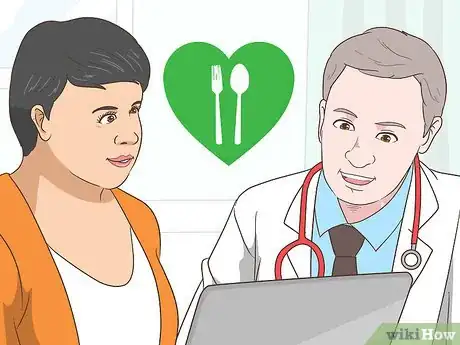
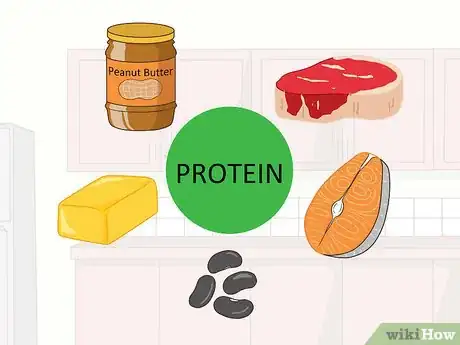
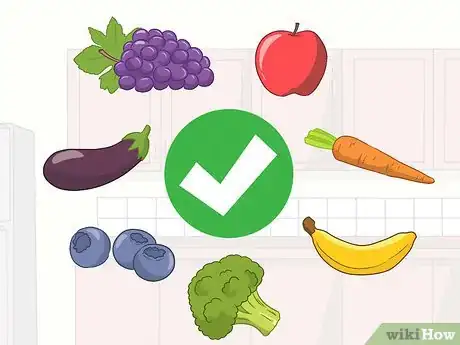

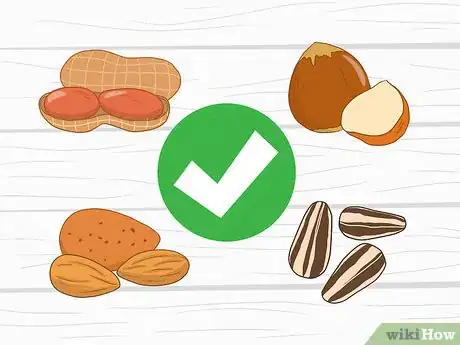
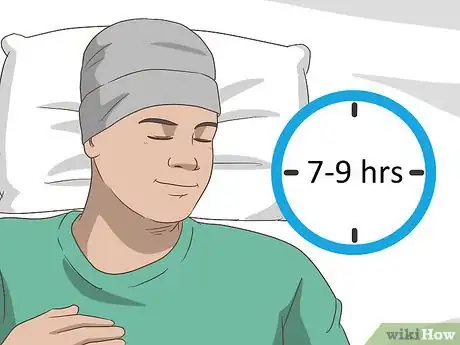


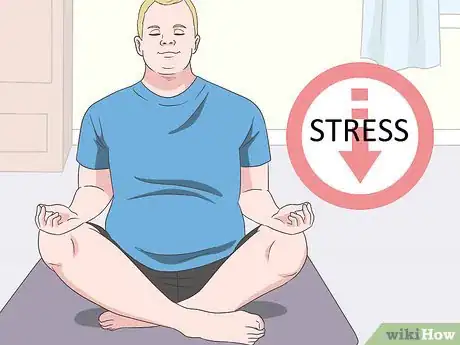
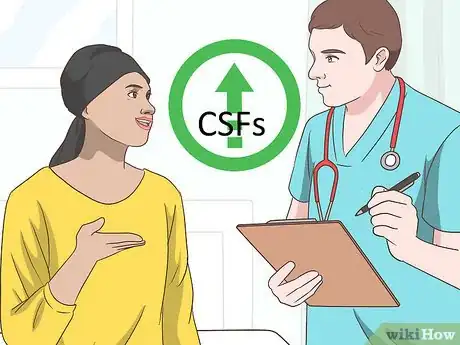
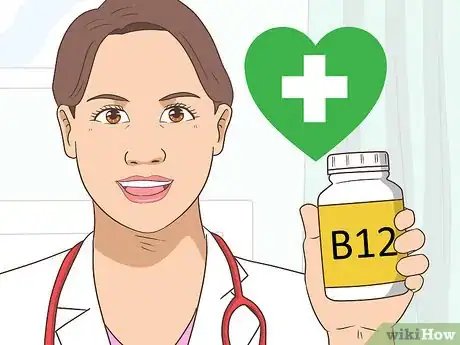
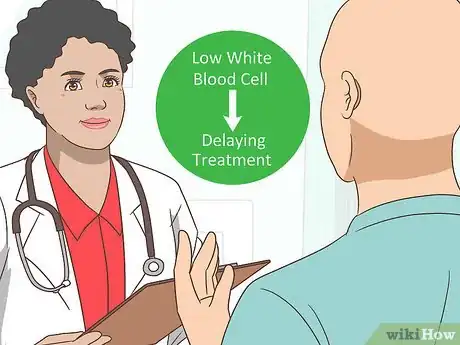

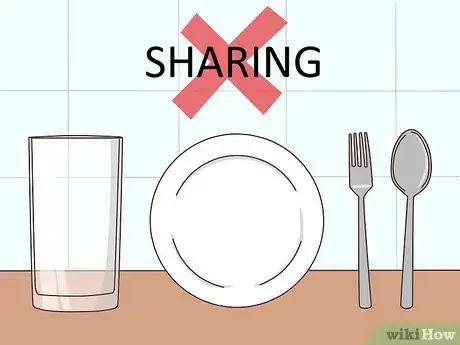
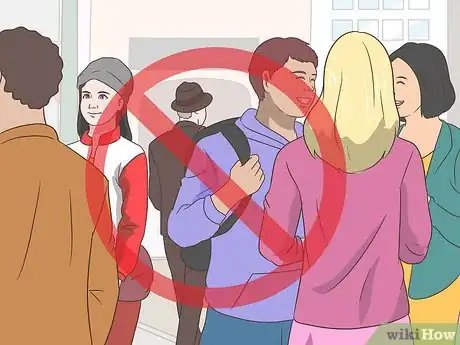
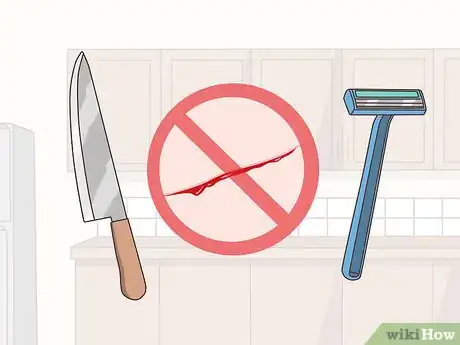

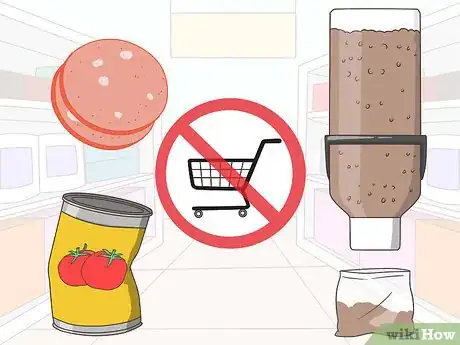

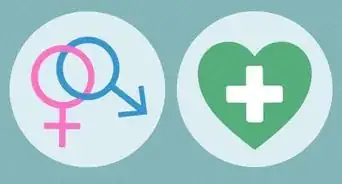
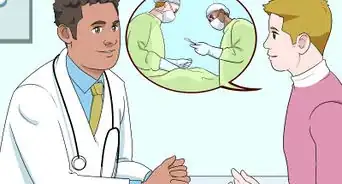



-Step-13.webp)

-Step-8-Version-3.webp)

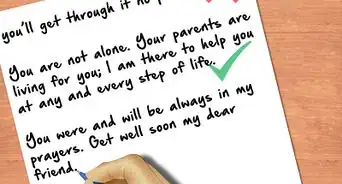











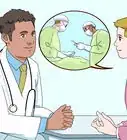
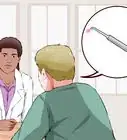



































Medical Disclaimer
The content of this article is not intended to be a substitute for professional medical advice, examination, diagnosis, or treatment. You should always contact your doctor or other qualified healthcare professional before starting, changing, or stopping any kind of health treatment.
Read More...